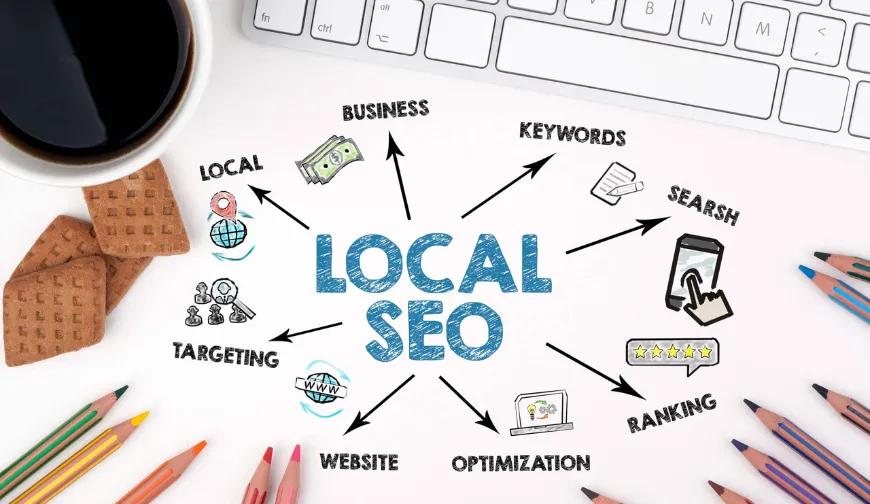In today’s competitive digital landscape, local SEO has become a crucial component for businesses aiming to attract customers within their geographical area. Local SEO focuses on optimizing your online presence to attract more business from relevant local searches. This article will delve into effective strategies for dominating local search and boosting your local SEO rankings, ensuring your business stands out in the local market.
What is Local SEO?
Local SEO (Search Engine Optimization) involves optimizing your online presence to increase visibility in local search results. This process is essential for businesses that operate in specific geographic locations and serve local customers. Local SEO helps you reach potential customers who are searching for products or services in your area, driving more foot traffic and online conversions.
Why is Local SEO Important?
1. Increased Visibility in Local Searches
Local SEO ensures your business appears in local search results, making it easier for potential customers to find you. When people search for services or products near them, your business will be prominently displayed, increasing your visibility and attracting local customers.
2. Higher Conversion Rates
Local searches often come with a strong intent to purchase. When users search for local businesses, they are typically ready to make a purchase or visit a store. By optimizing for local SEO, you can capture these high-intent searches and drive more conversions.
3. Competitive Edge
Many small and medium-sized businesses overlook the importance of local SEO. By investing in local SEO, you can gain a competitive edge over competitors who are not optimizing for local search, capturing more market share in your area.
Effective Local SEO Strategies
1. Optimize Your Google My Business Listing
Google My Business (GMB) is a powerful tool for local SEO. A well-optimized GMB listing can significantly enhance your visibility in local search results and Google Maps. Here’s how to optimize your GMB listing:
- Claim and Verify Your Listing: Ensure you claim your business on GMB and verify your ownership.
- Complete Your Profile: Fill out all relevant information, including business name, address, phone number, website, hours of operation, and categories.
- Add High-Quality Photos: Upload high-quality images of your business, products, and services.
- Encourage Reviews: Ask satisfied customers to leave positive reviews and respond to reviews promptly.
- Post Updates: Regularly post updates about your business, including special offers, events, and news.
2. Optimize for Local Keywords
Local keyword optimization is essential for improving your visibility in local search results. Follow these steps to optimize for local keywords:
- Conduct Local Keyword Research: Use tools like Google Keyword Planner, Ahrefs, or SEMrush to identify keywords with local intent (e.g., “best SEO services in [city]”).
- Include Location-Specific Keywords: Incorporate location-specific keywords into your website content, meta descriptions, title tags, and headings.
- Create Localized Content: Develop content that is relevant to your local audience, such as blog posts about local events, news, or customer success stories.
3. Optimize Your Website for Local SEO
Your website should be optimized to attract and convert local traffic. Here are some key elements to focus on:
- NAP Consistency: Ensure your business name, address, and phone number (NAP) are consistent across your website and all online directories.
- Local Schema Markup: Use local schema markup to provide search engines with detailed information about your business, improving your chances of appearing in local search results.
- Create Location Pages: If you have multiple locations, create separate pages for each location with unique content and local keywords.
- Mobile Optimization: Ensure your website is mobile-friendly, as many local searches are conducted on mobile devices.
4. Build Local Citations and Backlinks
Local citations and backlinks from reputable local sources can boost your local SEO efforts. Follow these strategies:
- List Your Business in Local Directories: Submit your business to local online directories and ensure your NAP information is accurate.
- Get Featured in Local Media: Reach out to local newspapers, blogs, and news sites to get featured in articles or news stories.
- Partner with Local Businesses: Collaborate with other local businesses for cross-promotions and backlinks.
5. Leverage Social Media for Local Engagement
Social media can play a significant role in your local SEO strategy. Engage with your local audience through social media platforms:
- Create Local Content: Share content that is relevant to your local community, such as local news, events, and promotions.
- Engage with Followers: Respond to comments, messages, and reviews from local followers promptly.
- Use Location Tags: Tag your location in posts and stories to increase visibility among local users.
6. Encourage and Manage Online Reviews
Online reviews are crucial for local SEO. Positive reviews build trust and attract more customers. Here’s how to manage online reviews:
- Ask for Reviews: Encourage satisfied customers to leave reviews on Google, Yelp, and other review sites.
- Respond to Reviews: Respond to all reviews, both positive and negative, to show that you value customer feedback.
- Address Negative Reviews: Address negative reviews professionally and try to resolve issues to improve your reputation.
Monitoring and Adjusting Your Local SEO Strategy
1. Track Your Local SEO Performance
Use tools like Google Analytics, Google Search Console, and local SEO tools to track your performance. Monitor key metrics such as:
- Local Search Rankings: Track your rankings for local keywords.
- Website Traffic: Monitor the volume and source of your website traffic.
- Conversion Rates: Measure the conversion rates from local searches.
2. Adjust Your Strategy Based on Data
Analyze your data regularly and adjust your local SEO strategy based on your findings. If certain keywords or tactics are not performing well, make the necessary changes to improve your results.
Conclusion
Local SEO is an essential strategy for businesses looking to attract customers within their geographical area. By optimizing your Google My Business listing, targeting local keywords, enhancing your website for local search, building local citations and backlinks, leveraging social media, and managing online reviews, you can dominate local search results and drive more traffic to your business. Stay committed to monitoring and adjusting your strategy to ensure long-term success. With the right local SEO tactics, Keyword.cat can help your business stand out and thrive in the local market.




